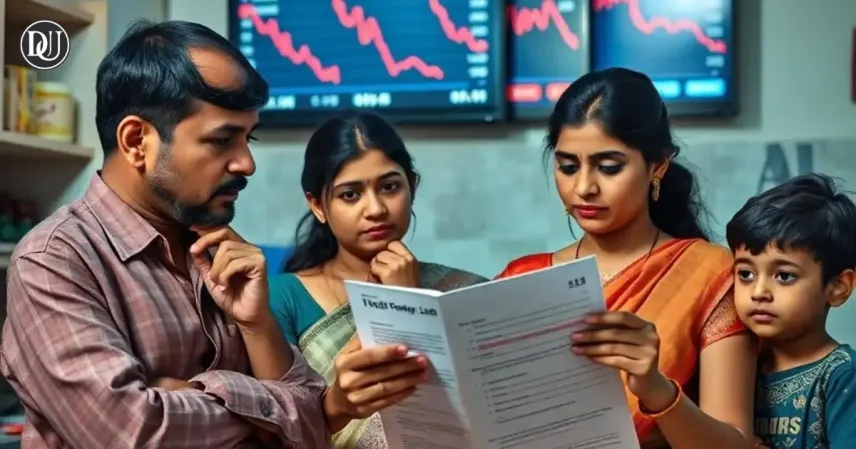India has long been known for its robust middle class, with salaried jobs being the backbone of financial security for millions. However, according to market expert Saurabh Mukherjea, this traditional model is undergoing a seismic shift. With technological advancements like automation and artificial intelligence (AI), Mukherjea predicts that the salaried middle class, as we know it, might face a slow but certain decline in the future.
This shift has sparked a wave of conversation about the future of work in India, a country that prides itself on a thriving workforce. As automation continues to take over jobs, from clerical work to complex decision-making tasks, the nature of employment in India is set to change dramatically.
🚀 The Rise of Technology
Mukherjea highlights that technology, particularly AI, is gradually making certain jobs obsolete. While automation can drive efficiency and innovation, it also displaces traditional roles that have been critical to the salaried middle class for decades. Jobs in sectors like manufacturing, retail, and even white-collar office roles could face significant disruption, potentially leaving millions without the secure, predictable incomes that they once relied on.
This is not just a passing trend but a shift that is likely to reshape the Indian economy. Mukherjea emphasizes that India's younger population, which is often seen as the country's economic powerhouse, will need to adapt to these changes.
đź’ˇ Opportunities Amidst the Crisis
While the idea of a shrinking salaried middle class may seem daunting, there is hope. Mukherjea points out that the rise of technology could also lead to the creation of new industries and job types that require skills that were previously unimaginable. The key challenge will be for the workforce to upskill and adapt to the new landscape.
The emergence of industries such as tech startups, renewable energy, and data science presents opportunities for those willing to learn and evolve. However, Mukherjea stresses the importance of preparing the younger generation to embrace the skills needed for tomorrow's jobs. Education and re-skilling will play a crucial role in ensuring that individuals remain relevant in an ever-changing job market.
🌍 The Global Influence on India’s Economy
India's growing digital economy and global integration are also contributing to the changes in the job market. Mukherjea notes that as more companies adopt remote working models and AI-driven systems, the job market in India is becoming more closely aligned with global trends. This could potentially make Indian workers both more competitive and more vulnerable, depending on how well they adapt to technological advancements.
đź”® Looking Ahead: The Need for Change
The future may be uncertain for the salaried middle class, but it’s also full of opportunities. As Mukherjea concludes, India needs to prepare for these changes now. Rather than fearing the rise of automation, the country can harness its potential to create new kinds of jobs, support its workforce in transitioning to these roles, and maintain its position as a global economic force.










